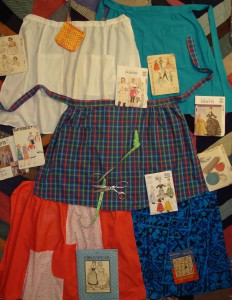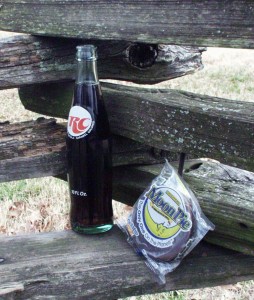by Karen
I watched the Sunday Morning news program Face the Nation this Labor Day weekend and learned that there is a certain level of controversy and turmoil over the planned message of President Obama to be played for students at school with the expected message that education is important. There is apparently some concern that this represents indoctrination. I will totally set aside the fact that indoctrination and assimilation along with keeping children out of the workforce were among reasons stated for establishing a national public school system in the first place. This is not a historic commentary.
First, I am familiar with those ubiquitous television sets in the nation’s school systems that would allow such a a message to be played for the students. Many, were provided “gratis” by corporations, but they didn’t actually provide them for free, they provided them in exchange for access to your children. They require that an advertising message be played and this is commercial indoctrination in the form of advertising. I could spend an entire post on the belief that the benefit of providing televisions to schools is worth the cost to the corporation, but the benefit of receiving televisions on that basis is not worth the cost of the mind space to our children.
Second, there were altruistic attempts to indoctrinate my children while they were in school. Altruism, is not usually as well funded as commercials and not nearly so sophisticated in levels of persuasion or the ability to push psychic buttons. It starts pretty well, but it does not always stick. My children came home saying that smoking cigarettes was terrible and they repeated the indoctrination they received with the fervor of a religion. The one of my children that seemed most sincere and devout is also the same one that began to smoke in high school and has been addicted to cigarettes ever since, something that damages her health, strains her limited budget and makes me sad for the burden it puts on her.
Third, the school systems I have been involved with have always handled controversial messages as well as possible (not that I see where there should be controversy in an acting President taking the time to encourage children to excel in school and take ownership of their education). Sex education, for example, was something that the school system my children attended handled well. The films (one for boys and a separate on for girls) were available for parents to see ahead of time and each child had to have a signed permission slip in order to see the film. I did not personally go in to view the films, but a trusted friend did. She said, to abbreviate things, that the two different films reinforced male/female stereotypes and that made her angry, but that they were technically accurate and she wanted her daughters to see the see the film that was produced for them. Reinforcing stereotypes does not please me, but when special interest groups weigh in on a topic like this, the resulting product is rarely the best possible message, but the best possible compromise, not at all the same thing.
When one of my children showed up with the permission slip I asked “Do you know what this is about?” Answer: “yes”. I then asked ” Do you want to see the film?” Answer: “Not particularly, but I won’t know what all the jokes are about if I don’t”. The response was unexpected, but the point was important and I signed the paper. At first glance, knowing what the jokes are about may seem less than the important point, but jokes actually show a sophisticated understanding of a subject. Understanding them is part of being aware of what happens in the social environment you share. More importantly, you should be able to tell two things about those jokes. 1. Are they funny? and 2. Are they fair? Yes, these two things are different. I can appreciate the humour and irony in jokes that do not seem fair to me and are not based on the way I see the world. It is part of being able to appreciate points of view that I do not share, something that I think that we as a nation are loosing a grip on. I can also tell when a joke goes too far.
The ability to discern fairness is really the big issue here, whether you are actually talking about jokes or about comments and opinions. If a person never sees the original act, idea or information that is being criticized, how could that person possibly know if it is fair or have any way to access what is being said? One person makes a criticism to another and it travels like the famous Normal Rockwell painting “Gossip” so that the original comment is not even recognized by the time it gets back to it’s originator. The vast majority of media also exaggerates in the same way in an attempt to gain market share. And the special interest groups? Pound the drums, rally the cry, encourage donations and the gulf widens.
However, if the criticism is anchored to an original source with which everyone has familiarity, there is some basis for keeping the logarithmic exaggeration, at least in part, under control. Everyone benefits when there is some basis to approach the world from something similar to a realistic point of view. Real conversations minus the huffing and puffing can occur. If your positions hold water they will stand up and if they do not…
So what exactly am I saying? Indoctrination is pervasive, most dangerous in the forms that we don’t think about or recognize, and as often as not unsuccessful, regardless of the level of altruism behind the message. Children and school systems are smarter than we give them credit for, and our children should not just be given the opportunity to think for themselves, it should be encouraged. And the best part? When you teach your children to think for themselves they are a lot more interesting. They even come back after growing up and teach you things, good things, important things, from time to time.
So if you would like some original source material with which to base your opinion on this particular issue, it will be available today at http://www.whitehouse.gov/


